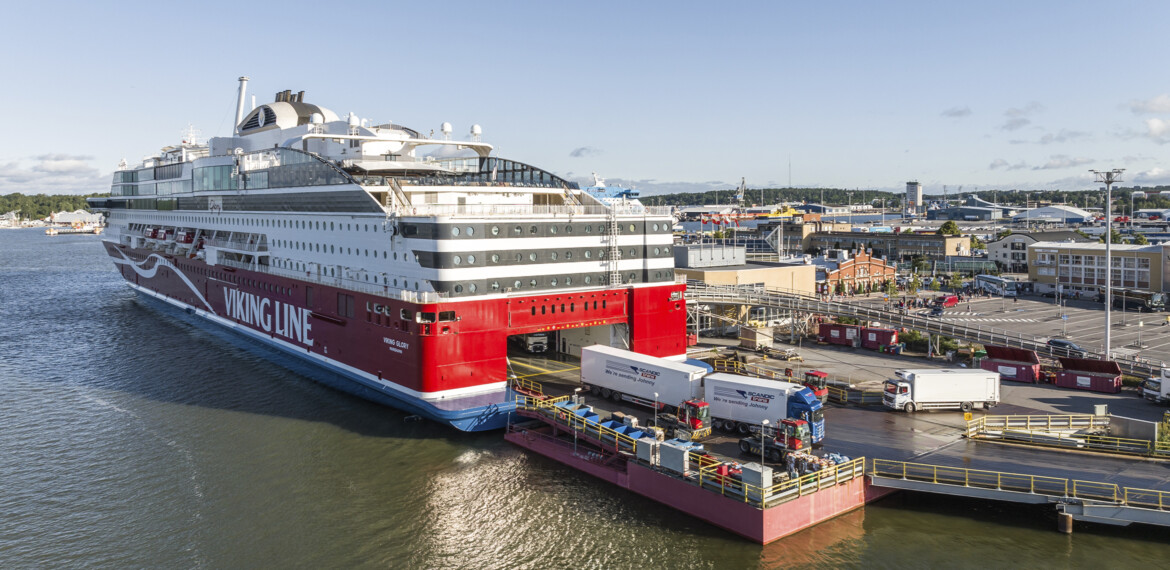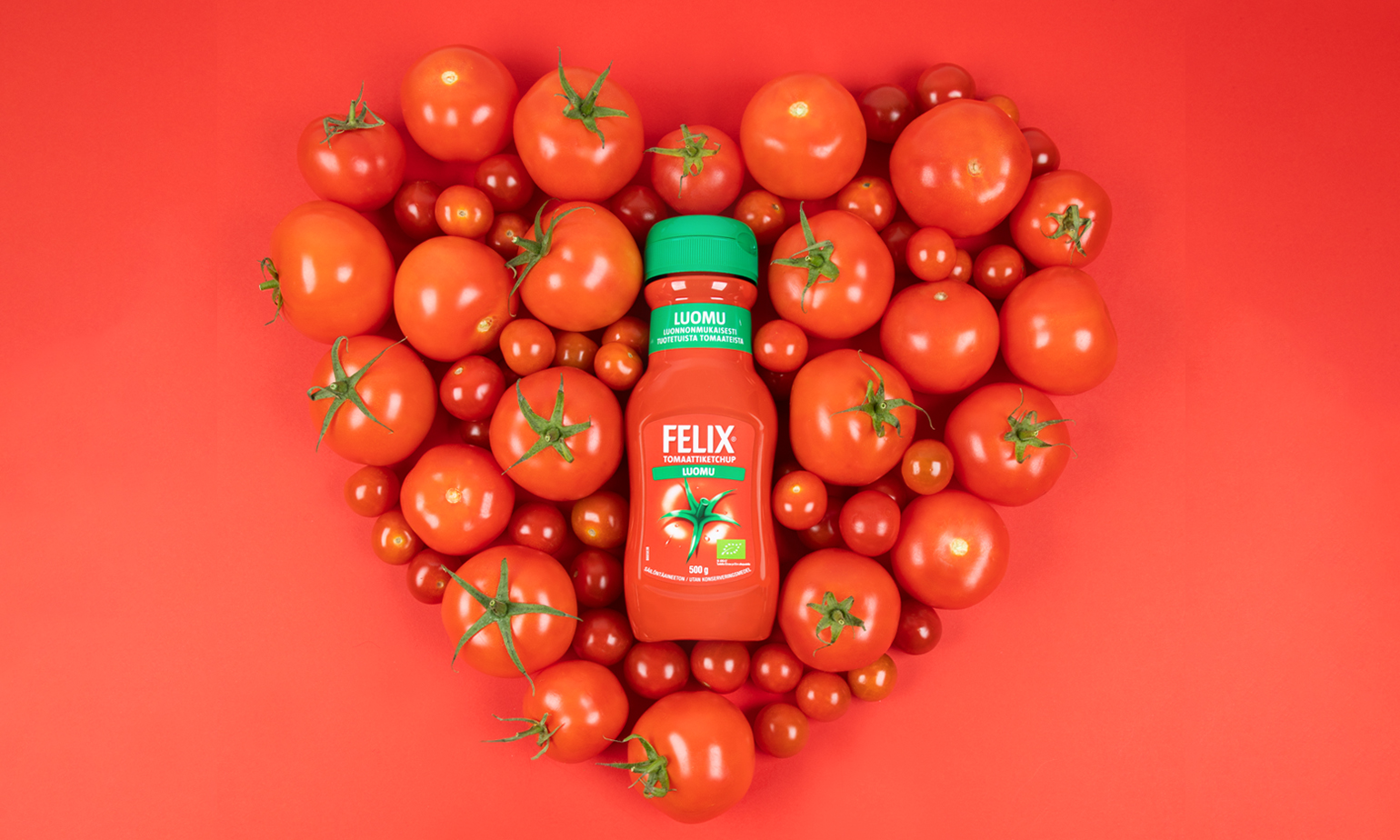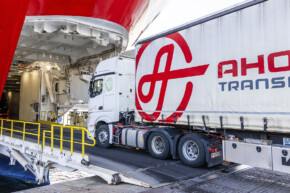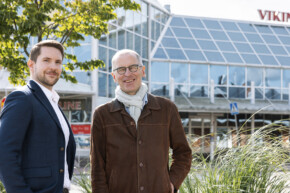Ketchup is red – and greener than before
The finishing touch of macaroni casserole, Felix ketchup is now transported from Sweden to Finland through the green cargo corridor of Viking Line and Scandic Trans. The emissions of transports have decreased by at least 90 per cent.

In summer 2024, Viking Line began to offer a new service for transport companies, the green cargo corridor. Within the service, Viking Glory or Viking Grace carry the cargo across the Archipelago Sea using biogas LBG.
“In practice, the cargo customer buys a volume of biogas LBG proportioned to its cargo volume. And the ship then sails with a mixture of LNG and LBG”, says Harri Tamminen, Freight Director of Viking Line.
He points out that the liquefied natural gas LNG normally used by Glory and Grace is a solution with lower emissions compared to traditional fuels.
“When the chosen power source is biogas LBG made of waste, the calculated emissions fall further by at least 90 per cent compared to LNG.”
Orkla Finland wanted to choose a high volume product
Food industry company Orkla Finland and transport company Scandic Trans were the first companies that took on Viking Line’s offer. Since July, all Felix ketchup has been imported to Finland through the green cargo corridor.
 “We wanted to be pioneers and show others as well that this is possible. And we chose on purpose a product with a high volume”, says Mauri Suuronen, Logistics Manager of Orkla Finland.
“We wanted to be pioneers and show others as well that this is possible. And we chose on purpose a product with a high volume”, says Mauri Suuronen, Logistics Manager of Orkla Finland.

One or two truckloads of Felix ketchup is imported to Finland per week, totalling around 150 truckloads a year.
“Using the green cargo corridor is a little more expensive than regular transports, the extra price is a couple of cents per one ketchup bottle. However, we want to act sustainably and contribute to looking after the environment. We pay the extra cost by ourselves and have not added it to the price the of the ketchup bottle”, Mr Suuronen says.
Orkla aims at halving its greenhouse gas emissions from the level of 2026 by 2030.
Fuelled by bio on the road as well
The essential thing is that Felix ketchup is transported in an environmentally sound way on the road as well.
“We fill the trucks with biofuel known as hydrotreated vegetable oil (HVO). Then we use specifically Neste MyDiesel to ensure that the fuel is 100% made of waste and scraps”, says Mikael Löfqvist, CEo of Scandinc Trans.
Felix ketchup is produced in Fågelmara, Southern Sweden, just under 500 kilometres away from Stockholm.
Text: Matti Välimäki
Photos: Jarmo Piironen, Cata Portin


